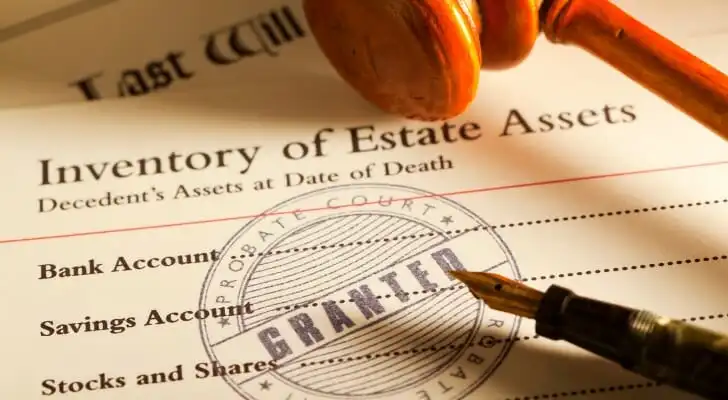Probate is the process of proving a will and settling an estate after an individual (decedent) dies. The cost of probate depends on several factors. One of the most significant is the state in which the decedent lived. The cost of probate varies from state to state depending on the general cost of living in the state and state probate laws. Other factors also affect the cost of probate. Here is a breakdown of fees associated with probate and tips on minimizing those fees. It is sometimes possible to avoid probate and its high costs altogether. A financial advisor can help you develop an estate plan that minimizes the costs of probate.
What Is the Probate Process?
The process of probating an estate is meant to settle the estate after the decedent’s death and following their last will and testament. Probate is also used for decedents who die without a will. Assets that are jointly owned or designated with a beneficiary are not subject to the probate process. But, assets that are just owned by the decedent are usually addressed in the will and are distributed according to the decedent’s wishes. An executor is usually named in the will. If not, one is appointed by the court. An administrator of the estate is appointed in the case of a decedent dying intestate.
The executor then takes an inventory of the decedent’s assets, pays the decedent’s outstanding bills, including probate costs, and presents the inventoried estate to the court for settlement. If there are no objections to the will, the estate is then closed. If there are objections, the probate judge is responsible for settling them. The longer the probate process drags on, the more expensive it will be regarding probate costs.
Probate is often a time-consuming process. A modest estate may take six to 24 months to settle. Larger estates can take even longer if they are complex. Add additional time if the will is contested or beneficiaries can’t be found. The longer the process, the more expensive it becomes.
The Costs of Probate
It’s not uncommon for probate costs to be anywhere from 3% to 10% of the value of the estate. The cost could be higher if an attorney is involved, if an accountant is employed, the estate is large or the will is contested. Here are the key costs of probate:
Court Costs
Court costs include filing fees. Some states mandate that the filing fee is the same for all estates. Other states allow for a graduated scale depending on the size and complexity of the estate. The more complex the estate the more paperwork has to be filed and forms completed. More paperwork means higher court costs. If any extra action is taken by the executor or an interested party, that means another filing fee. Examples of additional filing fees are if the will is contested, the beneficiaries have to be determined if the decedent died intestate, the decedent’s mental capacity is challenged or if a probate case has to be reopened.
Executor Costs

The executor of a will is typically paid at least a nominal fee. Executor fees are mandated by state law unless the decedent specifies in the will how much the executor should be paid. In that case, the will is typically followed.
Some states allow for a flat and “reasonable” fee which may be determined by the court. Other states require a graduated fee such as a certain percent of the estate for the first $100,000 and so on.
If the decedent’s will does not state the executor’s fee or if the decedent dies intestate, then the court determines the executor’s fee. Quite often, the executor has to post a bond when they are appointed by the court, and the estate usually pays this bond. The executor fee can range from 2% and up of the value of the estate plus extra for the bond.
Accounting Fees
Accounting costs can be significant for more complex estates. If the decedent has complicated business affairs to sort out or owns many stocks and other securities, the complexity will require higher accounting fees. The accountant will also have to file federal and state taxes in the form of a final return. For most estates, the estate tax won’t apply. As of 2024, it only applies to estates over $13.61 million and is assessed at rates from 18% to 40%.
Attorney Fees
Attorney fees can drive up the cost of even small estates if an attorney has to spend an extensive number of hours on the estate’s business. An attorney does not have to be hired particularly for small estates. If the executor deems an attorney necessary, the attorney is paid out of the estate. Attorney’s fees can be state-mandated, determined by the court or set by the attorney depending on the anticipated workload. The attorney will not usually take on the entire workload of the executor. Instead, they deal with the court on select matters. If an heir or beneficiary does not feel that the will is fair then they may hire their own attorney.
Estate Administration Fees
The executor will often incur significant costs of administering the estate. Numerous forms are required to be filed with the court. Property may have to be appraised in the case of business ownership, ownership of another real estate and ownership of other personal property like jewelry or precious metals. A real estate agent may have to be hired and paid to dispose of property or businesses. The property will have to be managed until it is sold or the estate is closed.
Bottom Line

The cost of probate is clearly significant since it depletes the estate and each heir will inherit less because of it. To minimize probate costs, the decedent should engage in strong estate planning before death. If beneficiaries are clearly designated in the estate plan through accepted legal practices, there will be more left for everyone.
Tips for Estate Planning
- Plan your estate to avoid probate altogether. Payment-on-death and transfer-on-death accounts are not subject to probate. Neither are retirement accounts nor life insurance policies. Jointly owned property and property held in a revocable trust are also not subject to probate.
- Do you need help with estate planning? A financial advisor can help you build a plan. Finding an advisor doesn’t have to be hard. SmartAsset’s free tool matches you with up to three vetted financial advisors who serve your area, and you can have a free introductory call with your advisor matches to decide which one you feel is right for you. If you’re ready to find an advisor who can help you achieve your financial goals, get started now.
- Saving for retirement is key to estate planning. It’s not unusual to have both an IRA and a 401(k) to your name. In the end, utilizing both types of accounts can only improve your chances of reaching a comfortable retirement. Check out SmartAsset’s 401(k) calculator and guide to employer 401(k) matching to see how you’re doing.
Photo credit: ©iStock.com/Kameleon007, ©iStock.com/stocknshares, ©iStock.com/10255185_880
